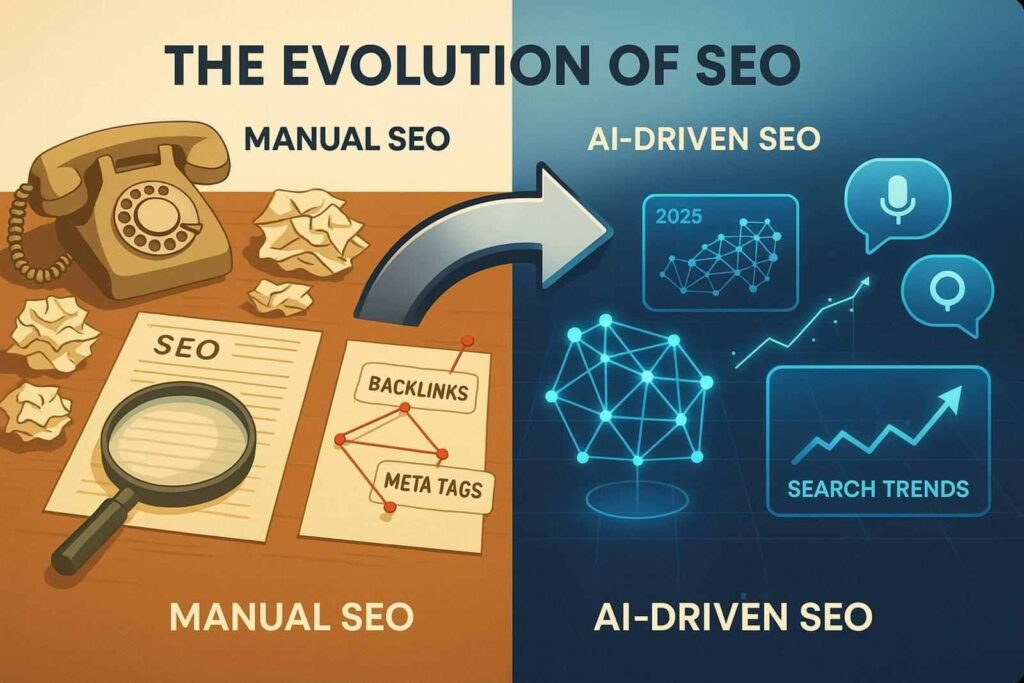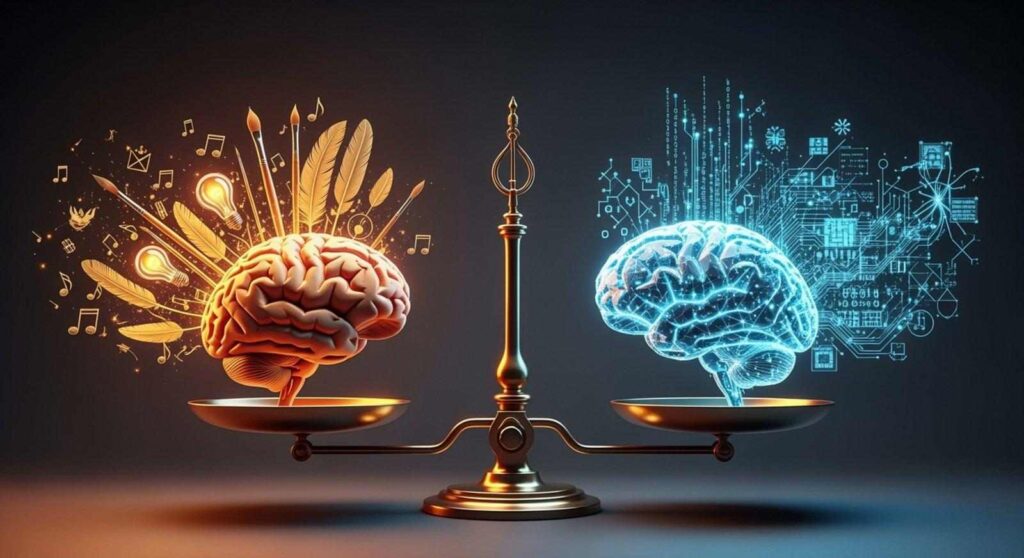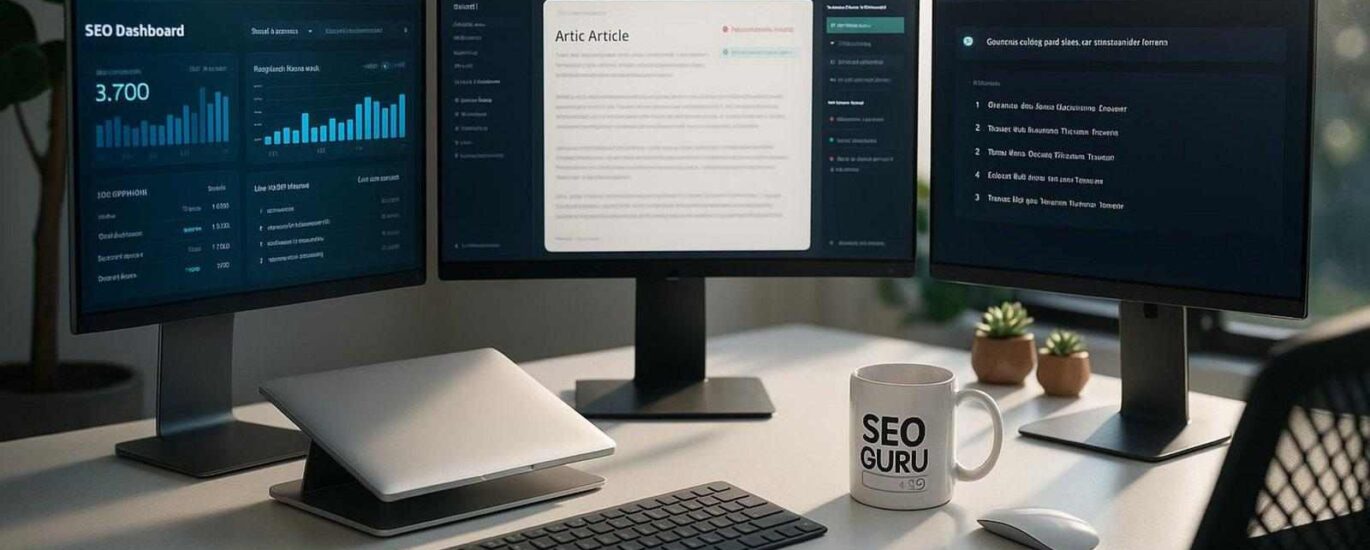Many digital marketers are asking, “What is next for SEO agencies as artificial intelligence and automation take a bigger role?” The short answer is that agencies will not become useless-instead, they will change in important ways.

Many digital marketers are asking, “What is next for SEO agencies as artificial intelligence and automation take a bigger role?” The short answer is that agencies will not become useless-instead, they will change in important ways.
AI will not replace creative thinking; it will make routine work faster and reveal new insights. This gives agencies a chance to move from repetitive, manual work to higher-level planning, creative improvements, and personalized client solutions.
SEO is changing faster than ever, and those agencies that use AI and automation will do better — offering more for their clients, whether they’re aiming for broad audiences or need local SEO services in the USA. AI in SEO is not a passing faze-it is a major change affecting how businesses connect with customers.
The Journey of SEO: From Manual Work to AI-Driven Solutions
SEO started with simple tactics like basic keyword use and building links by hand. The process was often trial-and-error. Today, it is more advanced, driven by data and smart tools. This change is mostly due to AI, which brings better accuracy, speed, and the ability to predict results for many parts of SEO.
Old SEO methods relied on stuffing keywords and collecting links. Now, these strategies can hurt rankings. Search engines-especially Google-are powered by strong AI models like RankBrain, BERT, and SpamBrain.
These systems understand not just keywords, but user intent and context, giving searchers more helpful, personalized results. Because of this, SEO now requires a more careful and planned approach, one that AI can make much more effective.
Moving from Old SEO to Automated Processes
In the past, SEO involved hours of digging through keyword lists, checking websites for issues manually, and slowly building link networks. These jobs took a lot of time and often led to mistakes.
With automation, powered by AI, these exhausting tasks are now handled by software. This includes keyword research, optimizing content, tracking performance, and checking for technical problems.
Letting automation manage the routine work means SEO teams can spend more time on planning, analyzing, and finding creative answers for clients. The idea is not to get rid of human skills, but to help people work faster, with fewer mistakes, across all their projects. This way, they can get better outcomes in less time.
The Effect of Language Models and Machine Learning
Large Language Models, such as Google’s Gemini and OpenAI’s ChatGPT, have changed SEO by better understanding and using human language. This helps with everything from writing content to understanding what users want.
Machine learning tools let SEO experts quickly study huge amounts of data and notice patterns. They help businesses create content that matches what users are searching for. These tools also allow direct answers to questions, leading to more “zero-click” searches where users do not even need to leave the results page.
As these systems get smarter, SEO strategies must change to make sure content is found and remains useful in new AI-powered searches.
AI and Automation: Changing How SEO Agencies Work
Adding AI and automation is already changing both daily work and bigger decisions at SEO agencies. Those making these changes quickly are already standing out from the competition.
What AI Means for SEO Agencies
For agencies, using AI means shifting from doing tasks one-by-one to giving expert advice. AI can quickly handle data collection and make content changes, freeing team members to focus on forming better strategies, building client relationships, and coming up with creative ideas.
Agencies can now offer deeper insights, spot market changes, and create more personal strategies for each client. It helps agencies anticipate what clients and markets need before they ask. This leads to more value for clients and stronger long-term partnerships.
How Automation Makes SEO Easier
Automation improves nearly every part of SEO work. Tasks like keyword research, which could take hours, can now be done in minutes, helping spot trends early. AI tools can also analyze top-ranking pages and suggest real-time changes for structure and linking.
Technical SEO checks, such as finding broken links or slow pages, are now scanned by AI tools and flagged immediately with clear suggestions.
With automation, agencies can manage more clients, work faster, and avoid mistakes. People can spend their time on important work-like reviewing large sets of results, creating strategies just for one client, and fixing tough problems.
AI Tools and the Modern SEO Stack
The toolkit of a modern SEO agency has changed. Today, AI-driven tools are a basic part of daily work, helping find opportunities, fine-tune content, and track results with great accuracy.
Common AI Tools Used by SEO Agencies
- Ahrefs: Offers a wide range of features, using AI to find keywords, check search volume, and spot gaps in content. It also has strong site audits to catch technical issues.
- SEMrush: Provides all-in-one tools for keyword analysis, tracking competitors, and predicting trends with the help of AI. It gives advice for improving content based on what’s already performing well.
- Surfer SEO: Focuses on improving pages by matching content, length, and keyword placement with what ranks well, using data-driven suggestions.
- Frase: Focuses on creating and updating content, with AI helping to make detailed content briefs and spot opportunities by analyzing high-performing pages.
- ChatGPT (OpenAI): Speeds up content creation by quickly generating articles, adding keywords naturally, and writing in multiple languages. It is useful for blog posts, product pages, and social media, keeping content interesting while pleasing search engines.
These tools are changing how agencies do SEO, making the work more efficient and driven by hard facts.

How to Add AI Tools to Agency Workflows
Using AI tools is not just about signing up for new software. Agencies should first look at how things are done now and see where AI can help most, for example by speeding up data review or writing first drafts of content.
Picking tools that work well with existing systems limits disruptions and keeps everything running smoothly. A good plan is to start with a few AI tools, train the team, and then add more as people get comfortable. The aim is for AI to support the team, freeing up time for creative and strategic work, not to replace the human touch.
Pros and Cons of Automation in SEO
There are many good points to automation: less manual work, fewer mistakes, more time saved, and the power to process very large amounts of data. AI-driven tools quickly find chances for growth, flag technical problems, and suggest ways to optimize.
For example, site audits are faster, and keyword tools can spot valuable search terms that would have been missed. Agencies can also react faster to search engine changes and make choices that get better results.
But automation is not perfect. AI can’t match the creativity, judgment, or the feel for language that people have. Content could end up bland or miss important details, and a computer can’t always react to unexpected changes.
There are also concerns about privacy and making sure automated content tells the truth. The best SEO combines AI’s efficiency with real human skills for strategy, storytelling, and ethics.
Automation in Key SEO Tasks: Content, Keywords, and Outreach
Adding AI and automation is reshaping the main building blocks of SEO, from choosing keywords to building links with other websites.
AI for Keyword Research and Spotting Trends
In the past, keyword research was all manual, slow, and often missed important phrases. AI now speeds up this process, searching large datasets quickly to find new keyword ideas and trends. AI doesn’t just count searches-it also groups queries by type (like questions versus product searches), letting agencies shape their content more closely to real user needs.
AI also helps uncover long, specific keyword phrases that may not have much traffic, but bring in very interested visitors. Tools generate lists of related keywords, check how hard it will be to rank for them, and sort them by intent.
By watching data from search engines, social media, and news, AI can identify hot topics before they become widely known, so agencies can create content that is ready when interests spike.
Automated Content Writing, Optimization, and Site Audits
AI is now used to help plan and write content. When writers get stuck, AI can suggest popular themes or create first drafts and outlines in minutes. While editors still review and add brand voice, AI makes the initial phase much quicker.
For optimization, AI checks the top results and advises on how to improve formatting, keyword use, and ease of reading. These tools can also write titles and descriptions that stand out in search results.
Site health is just as important. Automated audits scan entire websites quickly, spotting broken links, duplicate pages, and crawling errors. This helps teams fix problems fast and keep the site appealing both for users and search engines.
Automating Link Building and Outreach Efforts
AI has also made link building more focused. Automation tools look at many details to find the best websites for high-value links. This means outreach is aimed at places that can really increase visibility.
Communications can be sent on schedule, followed up, and tracked automatically, which makes reaching out for links smoother and more personal. These systems also watch for harmful links that could hurt rankings, helping agencies fix risky problems before they cause damage.
Technical SEO: Making Sites Healthy and Fast
Technical SEO benefits strongly from automation. Site audits done by AI spot hidden mistakes, like slow pages or content that is repeated by accident. AI tools check speed, responsiveness on mobile, and other key factors, letting businesses catch and fix problems as soon as they appear.
These tools also add schema markup automatically, which helps search engines better understand site content and display it attractively. AI can optimize images, simplify code, and make web pages load faster, which all help boost site rankings.
Balancing Automation and Human Skills in SEO
While AI and automation are powerful, the best results come when they work together with human thinking. People provide the creative ideas and broader understanding that technology cannot.
Human Judgment Versus AI Suggestions
AI can recommend keywords, check technical issues, and draft content, but it cannot take the place of human taste or reasoning. Humans know when to adjust a strategy for long-term goals, add emotion to content, or connect storytelling to brand identity. AI should handle drafts and research, but final decisions and quality checks need a person’s input to keep content unique and on-brand.
The Dangers of Relying Too Much on Automation
If agencies depend only on automation, they risk ending up with similar strategies as everyone else. Content may become repetitive or miss important details. AI can also make mistakes that humans would catch. Plus, search engines are always changing, and only people can fully interpret these changes and adjust in creative, ethical ways.
Agencies that fully hand over control to AI may lose their special edge and make errors that harm their clients.

Building Agencies That Can Handle Change
To stay strong in the future, agencies need to mix AI tools with ongoing staff training. Teams should learn how to use technology, judge its results, and fit it into smart, human-led strategies. The most successful agencies will put time into understanding clients, solving tough problems, brand storytelling, and real communication.
By combining AI’s strengths with creativity and flexibility, agencies can make strong, flexible business models that are prepared for ongoing changes. This teamwork between technology and people leads to stable, better results.
Trends for SEO Agencies: 2025 and After
As time goes on, SEO will keep changing quickly as AI improves and users change how they search. Agencies need to keep up to stay helpful to clients.
Search Changes from Google SGE and AI
Google’s Search Generative Experience (SGE), powered by its Gemini model, changes how search results look. Instead of just links, users see AI-created summaries at the top. This contributes to the zero-click trend, where users get needed info right away.
For agencies, this means aiming to be cited in these summaries and making content clear and direct. Content needs to answer questions fully, compare products, and provide easy-to-explain info for AI to use. A focus on being known for experience, expertise, authoritativeness, and trustworthiness (E-E-A-T) is more important than just reaching the top spot.
Voice Search and “Zero Click” Results
Voice searches are predicted to make up over half of searches by 2025. These searches are often longer, in question form, and more conversational (e.g., “What’s the best laptop for travel?”). AI tools help agencies understand these changes and optimize for them.
Content must be built for featured answers, as these are often read directly by voice assistants. As zero-click searches grow, it’s important to add structured data (like FAQ and review schema) so content remains visible even when users don’t visit the website.
Personalization and Predictive SEO
AI is making search results more personal than ever, showing results based on each user’s history and preferences. Agencies must go beyond wide targeting to create strategies focused on individual needs.
AI analytics help by predicting trends, spotting upcoming changes in search patterns, and giving agencies time to adjust. Those who can analyze and predict well will offer more value and help their clients get ahead of competitors.
What’s Next for SEO Agencies in the Age of AI?
With AI and automation part of daily SEO, agencies face the question: Will SEO disappear? What matters most now, and how should services change to attract clients?
Will SEO Still Matter in 5 to 10 Years?
SEO will still be important years from now, but it will look different. The goal stays the same-helping websites get found in search and win free visitors. As Google and other search tools grow more advanced, businesses still need to be where people look. The tactics will change, and skills needed will shift.
The ongoing survival of SEO depends on changing with the times-learning to focus on tough problems like intent, new search features, and making sure helpful content is what users find. SEO isn’t disappearing; it’s just becoming harder and more specialized.
How Changes in User Behavior Affect Agencies
People are searching, asking questions, and interacting with AI tools differently. Zero-click searches are more common, so agencies must make sure their content is selected for summaries and instant answers. As voice search grows, strategies need to include more natural language and answers to local questions.
Agencies must build broader, more helpful content to match how people interact with search-answering not just facts, but also helping with problem-solving and sharing different ways to use information.
How Agencies Should Adjust To Win and Keep Clients
To win more business, agencies need to do more than just basic SEO. New offerings could include “AI Content Audits,” “Voice Search Optimization,” or “SGE Visibility Consulting.” They should show clearly how AI helps deliver smarter results and more personal strategies. Demonstrating expertise in advanced tools, quick trend spotting, and combining AI with personal client care will set them apart.
Agencies who are open about blending AI efficiency with human strategy will build stronger relationships and prove their value. The secret is focusing on user-first content, working across platforms, and always learning and improving. Showing how AI improves service quality-not just speed-will help agencies remain essential partners in the new SEO landscape.





